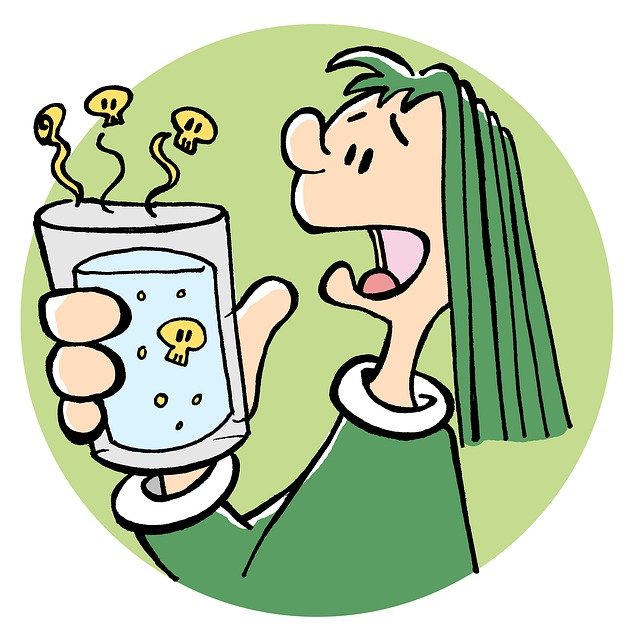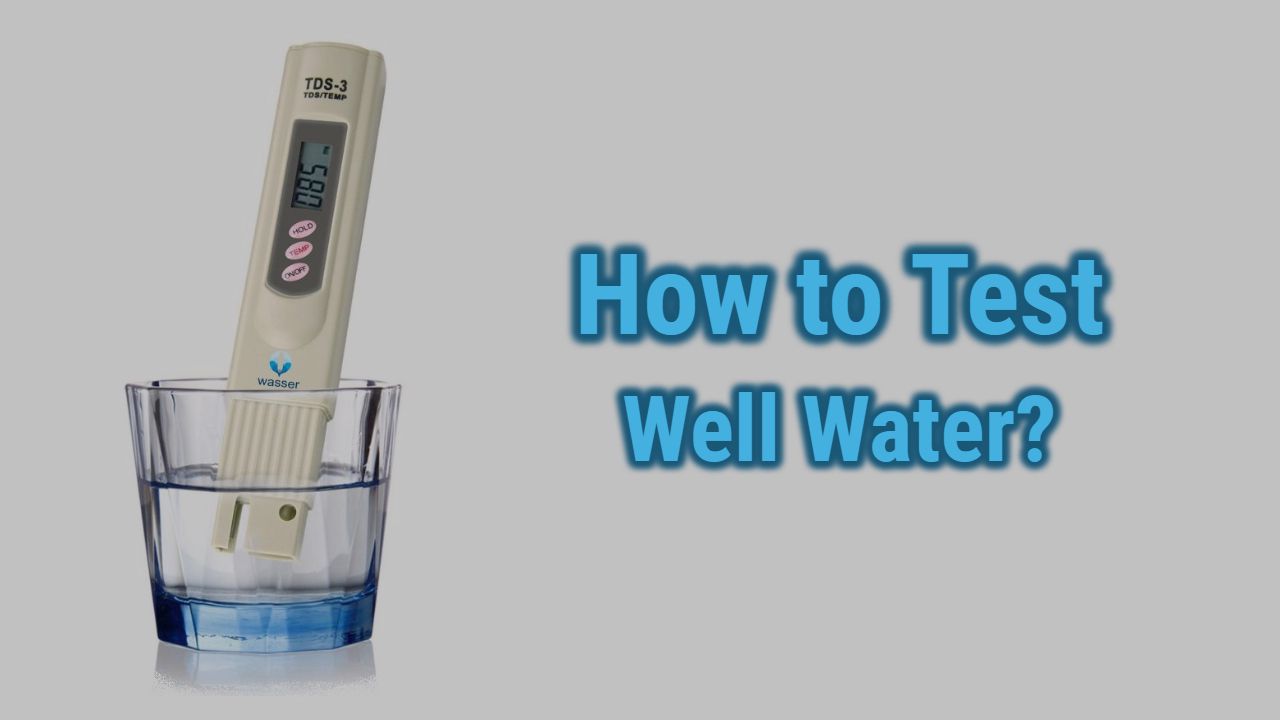Well! Nowadays, it’s very common to find a private well water system installed at house premises. It is one of the most trusted and reliable water sources. It is the sole proprietor of the owner and can be looked after and taken care of the well accordingly. However, many avoid private wells due to their cumbersome cleaning process, maintenance cost, fear of water getting dry, fear of contaminants sipping in, or animal’s carcasses being washed into the well.
And one of the major issues faced by people owning private well water is, they always complain about the water quality and the number of harmful contaminants present in the water. Though, all private wells get water from a groundwater source. If your location environment is polluted or contaminated, then you are sure to get dirty water.
In this article, we will try to discuss the well water contaminants, how to test the well water, what all harmful contaminants need to be tested, and what are the standard testing limits and numbers involved. Testing the quality of any water is a technical task, and it should require technical help. It shouldn’t, however, be done unknowingly. And moreover, testing private well water requires knowledge of different contaminants and the level at which they should be present or removed from the well.
Many local governments have set minimum and maximum limits for water quality and taste. Particularly in the United States, local governments have strict guidelines for healthy drinking water assistance. The government specifically talks about many harmful contaminants, for example, magnesium content, arsenic, chlorine removal, calcium levels, nitrite levels, etc.
Today, we will focus on well water, its testing methods, and the contaminants involved. We will also discuss how to keep the water clean and which harmful substances should be avoided and made drinkable for children and adults. It can get confusing to get the requirements for testing private well water. Sometimes you would need regular testing to ensure your water is safe to drink.
Table of Contents
WHY IS WATER TESTING CRUCIAL?

All of us are aware of the fact that a little dirty water can have huge consequences for our body and overall health. And water is something we drink and use daily for various other purposes. Water is a very important aspect of everyone’s life. Do you know?, About 70% of our body consists of water; keeping our body hydrated is a very healthy habit. It is said that about 70% of our earth is covered with water in various forms. This is the importance of water for the world. And it’s a thing that sustains life for all of us.
Testing your water is like saving your life from future mishaps. Today, no matter where you live, water will anyhow have harmful bacterias, viruses, protozoa, nitrates, leads, harmful dissolved solids, etc. And to find out what harmful materials and substances are present in your water, water testing has to be done.
The World Health Organisation (hereafter referred to as WHO) circular reported that no country in the world is free from bad water; each and every country has contaminants in their water. The main reason given by WHO was groundwater is getting contaminated due to human negligence. Industries leave toxic substances near water sources or in-ground, which in return these substances reach the groundwater level contaminating the whole water table.
To be specific, private well water faces the issue of untreated groundwater. This water is not at all fit for drinking in any condition. So it is highly advised to get a private well tested regularly and remove the unwanted contaminants from the water well.
CONTAMINANTS THAT ARE FOUND IN A PRIVATE WATER WELL

- Harmful Bacteria
- Different types of Viruses
- Protozoans
- Magnesium, Chlorine, Calcium ions, which are harmful to the body
- Sulfates
- Nitrate typically found in groundwater is a major contaminant found in well water
- Fluoride, actively found in well water, fluoride chemical leads to fluorosis disease
- Lead, the most toxic metal also found in well water, has very bad consequences on the body
- Agricultural chemicals also sip into the ground, making the water contaminant
- Animals carcass has actively been found in well water, harmful chemical it generates after reacting to the oxygen
- Volatile Organic Compound (VOC), chemicals found in fuels and industries, sip into the groundwater, making the water chemically harmful
- Pesticides and herbicides, that are commonly used near wells, contaminating them
There are two types of categories used to test well water
- Bacteriological or Biological Testing Category– This category is specifically used to test two types of bacteria found in water is Coliform and E.coli. It is recommended to test bacteria in your water twice to thrice a year. Both these bacterias are very harmful to your health; E.coli is even more dangerous for our health than Coliform. Recently, WHO warned nations from using an Antibiotic against E.coli due to the bacteria being immune to this antibiotic if taken for a prolonged time.
- Chemical Testing Category– This testing is done for chemicals like nitrates, fluoride, leads, magnesium, and other harmful metals, etc. It is recommended that you test these chemicals regularly for better results. These chemicals can become dangerous and redevelop, so a regular checkup is required.
Note– These testing time, intervals and regularity, is required based on the water quality you have in your locality. For instance, if the private well is located near agricultural farms and near to industrial areas, then regular tests for pesticides and VOCs is a must.
TYPES OF POSSIBLE WELL WATER TREATMENT METHODS

- Reverse Osmosis (RO)– is a semi-permeable RO membrane placed at the entry point of the well water to the house. It is one of the most effective ways to purify water. There is a high possibility that RO water can be remineralized.
- Laboratory Test– water samples can be collected and given to laboratories to check the condition of the water. It will take a few days to determine the quality.
- Water Tester Strip– This strip is generally used for small water quantities. A large amount of water testing can bring irregular results. According to the color, contaminants of water can be identified. For example, Red– very bad water quality, Green– good water quality.
- Water Softener– Softener is used to soften the hard water. This treatment is very suitable for private well water. An ion-exchange method is used to soften the hard water.
- Cartridge Filter– is used to remove harmful substances. A cartridge is used at the entrance of the well water. It is also used to remove infectious chemicals from water.
- Chlorine– Chlorine is used as a disinfection chemical that removes dangerous substances from water. It helps protect against pathogens.
- UV Treatment– Ultra Violet is used to kill germs and bacteria through UV rays.
CONCLUSION
It is clear that there are a lot of options for treating and testing your private well water. But which is most suitable is what really matters. We have also discussed well water testing benefits and what are the things to keep in mind while testing. From the above detail, it is confirmed that well water is full of contaminants, and it is necessary to test your water in intervals within a year.
We recommend that you test your water every 6 months if your locality is infamous for dirty water or else once a year will do for normal water conditions. Do keep one thing in mind that no matter what is the condition of your well water, treating them at regular intervals is far the best precautions one can take. ”Always treat and test your water and drink the best.”
Related Article:
Best Whole House Filter for Well Water
How to Remove Iron from Well Water?
Well Water Vs City Water – What is the Difference?
